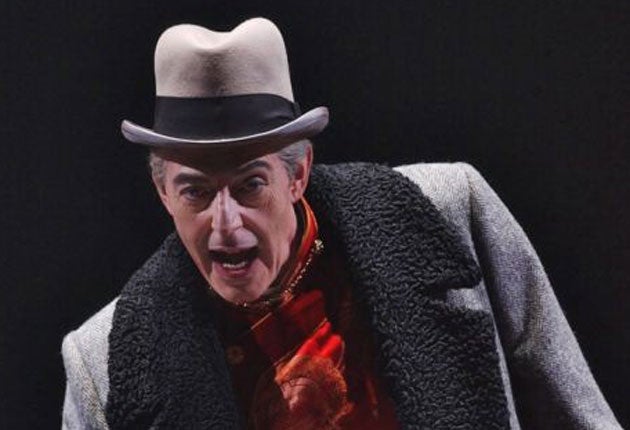Laszlo Polgar

Your support helps us to tell the story
From reproductive rights to climate change to Big Tech, The Independent is on the ground when the story is developing. Whether it's investigating the financials of Elon Musk's pro-Trump PAC or producing our latest documentary, 'The A Word', which shines a light on the American women fighting for reproductive rights, we know how important it is to parse out the facts from the messaging.
At such a critical moment in US history, we need reporters on the ground. Your donation allows us to keep sending journalists to speak to both sides of the story.
The Independent is trusted by Americans across the entire political spectrum. And unlike many other quality news outlets, we choose not to lock Americans out of our reporting and analysis with paywalls. We believe quality journalism should be available to everyone, paid for by those who can afford it.
Your support makes all the difference.Laszlo Polgar, who died on 19 September 2010 aged 63, was a Hungarian bass and member of the Zurich Opera. His most famous role was probably that of Bluebeard in Bela Bartok's Bluebeard's Castle, for which he won a Grammy Award for best opera recording in 1999 along with soprano Jessye Norman, conductor Pierre Boulez and the Chicago Symphony Orchestra.
Polgar's versatility and deeply resonant voice allowed him to play many other major roles, including Rocco in Beethoven's Fidelio, Sarastro in Mozart's The Magic Flute, Basilio in Rossini's The Barber of Seville, Philip II in Verdi's Don Carlos and Gurnemanz in Wagner's Parsifal.
Polgar (left, in Der Kreidekreis, EPA) was born on 1 January 1947 in Somogyszentpal and studied at the Hungarian Music Academy. He won several singing competitions, such as the Dvorak in 1971, the Schumann in 1974, the Erkel in 1975, the Wolf in 1980, and the Pavarotti in Philadelphia in 1981.
Join our commenting forum
Join thought-provoking conversations, follow other Independent readers and see their replies
Comments